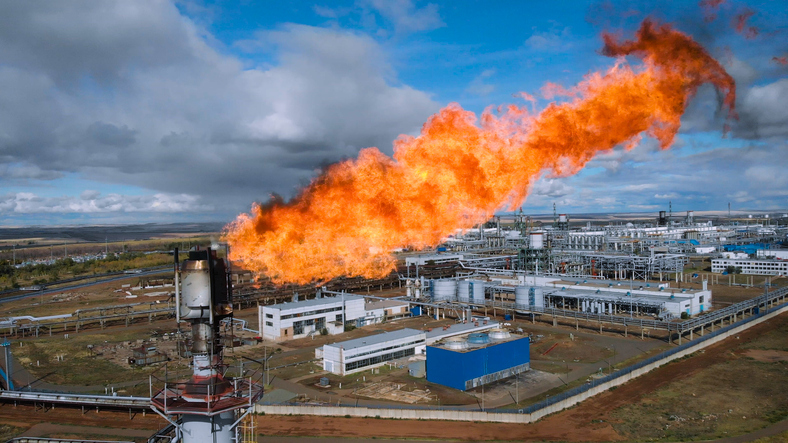
Climate change poses a severe threat to many of the nation’s chemical plants.
In fact, according to the Government Accountability Office (GAO), nearly a third of the facilities that store or use hazardous substances in the United States are located in areas where climate-driven sea-level rise, hurricane storm surge, wildfires, and flooding from heavy rain could trigger fires, explosions, or releases of toxic chemicals.
“Natural Hazards” Worsening for Thousands of Chemical Plants
The federal watchdog’s latest report is based on an analysis of the 10,420 factories, refineries, and water treatment plants currently designated “Risk Management Plan” (RMP) facilities by the U.S. Environmental Protection Agency (EPA) because they manufacture, use, or store hazardous chemicals. The report’s authors concluded that at least 31% of those sites are located in areas with ‘natural hazards’ that may be exacerbated by climate change.
“Accidental releases of hazardous chemicals caused by natural hazards have been rare at RMP facilities, according to EPA and the Chemical Safety Board (CSB),” the report states. “However, recent natural disasters have demonstrated the potential for natural hazards to trigger fires, explosions, and releases of toxic chemicals at facilities.”
While at-risk facilities are located in all 50 states, Washington D.C., and Puerto Rico, nearly 40% of facilities cited by the report are located in the Midwest or Great Lakes regions. An additional 30% are in the 14 southern states between North Carolina and New Mexico, including dozens situated in Texas and Louisiana.
Climate-Driven Storms Linked to Plant Explosions, Chemical Releases
Several chemical facilities along the Gulf Coast have already suffered damage due to climate-driven storms in recent years.
For example, in 2017, unprecedented flooding from Hurricane Harvey caused a series of explosions at an Arkema chemical plant in Texas. Just last year, Hurricane Ida caused leaks and power outages at facilities from Louisiana to New Jersey. And in 2020, Hurricane Laura forced tens of thousands of people near Lake Charles, Louisiana, to shelter in place after a local chemical plant began leaking dangerous chlorine gas.
Flooding is by far the most significant threat facing the nation’s chemical plants, with Federal Emergency Management Agency (FEMA) flood maps indicating that at least 2,400 facilities are located in vulnerable areas. However, some chemical plants may be at even greater risk, as FEMA’s maps do not consider the potential for sea-level rise or other forms of climate-driven flooding.
To mitigate this growing risk, the GOA called on the EPA to adopt six specific recommendations:
- Provide additional compliance assistance, including data, tools, and technical support, to RMP facilities related to risks from natural hazards and climate change.
- Develop an information system to track common deficiencies found during inspections, including any related to natural hazards and climate change. Use this information to target compliance assistance.
- Issue regulations and guidance to clarify requirements and provide direction for RMP facilities for incorporating risks from natural hazards and climate change into their risk management program.
- Develop a method for inspectors to assess the sufficiency of RMP facilities’ incorporation of risks from natural hazards and climate change into risk management programs and provide related guidance and training to inspectors.
- Work with officials at regional office to incorporate vulnerability of RMP facilities to natural hazards and climate change as criteria when selecting sites for inspection.
- Consider incorporating the relative social vulnerability of communities potentially impacted by an accidental release when selecting RMP facilities for inspection.
Undefeated Chemical Plant Explosion Lawyers with Billions Won: Call 1-888-603-3636 or Click Here for a Free Consult.
Our Undefeated Houston Plant Explosion Lawyers have won Billions for clients across Texas, Louisiana, and throughout the United States in connection with the worst chemical disasters in recent history.
If you or a loved one were injured, tragically killed, or developed health problems in connection with a chemical explosion or release, call 1-888-603-3636, use the Contact Form on the right, or Click Here to send us a confidential email.
All consultations are free, and because we work on a contingency fee, you won’t owe us anything unless we win your case.